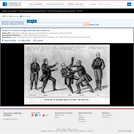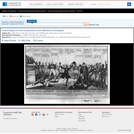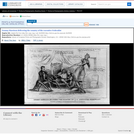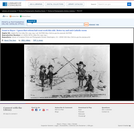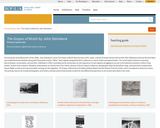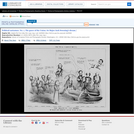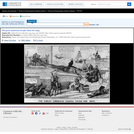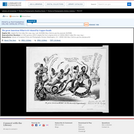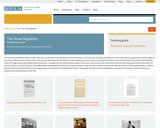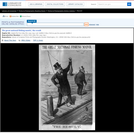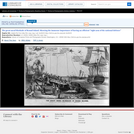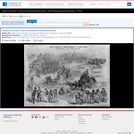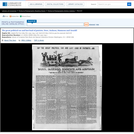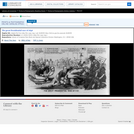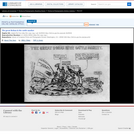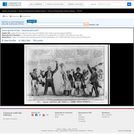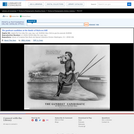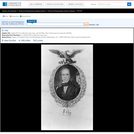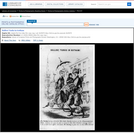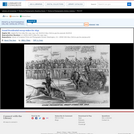
The Free Soil sympathies of the cartoonist are evident in his portrayal of the 1848 presidential contest as a race between the three major candidates. The contenders are on the course. Whig candidate Zachary Taylor (left) rides a bloodhound with a collar reading "Buena Vista." The bloodhound is a reminder of the public outcry over Taylor's controversial use of dogs against the Indians in the Second Seminole War. The Battle of Buena Vista was one of Taylor's most decisive but costly victories in the Mexican War. A pouch of "Dead Letters mes up & then we can go ahead." A crowd of men look on from behind the rail, most of them shouting for Van Buren. Among the disgruntled is (third from left) Isaiah Rynders, a New York City political leader, who curses Taylor's poor performance, "Damn that Bloodhound! how he lags." An unidentified companion responds, pointing to Van Buren, "Just as I told you Rynders." Further right stand editor James Watson Webb and another man, who lament, "This sacrificing "Principles" for "Men" has availed me nothing," and "Damn it, Webb, we're both done brown!" Webb backed Taylor's bid for the presidency, although the candidate persistently refused to avow Whig party principles. The disappointed pair form a marked contrast to the jubilant Horace Greeley (far right), who waves his hat in the air and jeers, "Where's Webb's 30,000 men in Buckram now?" (See "One of the Young B'Hoys in Ecstasies," no. 1846-14.)|Entered . . . 1848 by H.R. Robinson.|Lithd. & publd. by H.R. Robinson 31 Park Row N. York. Adjoining Lovjoy's Hotel (Opposite the Park Fountain).|Signed with initials: W.J.C.|Title appears as it is written on the item.|Weitenkampf, p. 96.|Forms part of: American cartoon print filing series (Library of Congress)|Published in: American political prints, 1766-1876 / Bernard F. Reilly. Boston : G.K. Hall, 1991, entry 1848-37.
- Subject:
- History
- U.S. History
- Material Type:
- Diagram/Illustration
- Primary Source
- Provider:
- Library of Congress
- Provider Set:
- Library of Congress - Cartoons 1766-1876
- Date Added:
- 06/13/2013
